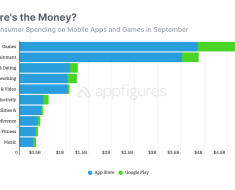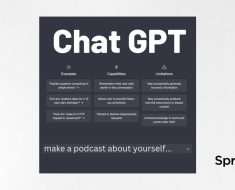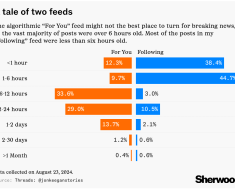So, you’re in quite a pickle right now. You’ve just been caught using ChatGPT and you don’t know what to do. Let me reassure you: you’re not the first one and certainly won’t be the last.
When ChatGPT and AI arrived, absolutely no one knew how big it would become, especially in the field of education. Now, everyone’s trying to mitigate its consequences on society through laws, restrictions, and AI detectors.
So, when you’re caught in the eye of the storm, it may seem hopeless for your future. You’re alone, confused, and scared. But, allow yourself a moment to breathe and stay calm because let me tell you this: it’s not the end of the road.
Here are the steps you need to follow when you’re accused of using ChatGPT.
Understand The Situation
Don’t panic. There are ways to turn this around. You should be aware of your schools policies on AI plagiarism before doing anything (hopefully they have these published online). Besides that, these are the three first things to keep in mind:
Stay Calm and Assess
Pause and breathe. Collect your thoughts. Stay calm.
Take stock of everything that has happened and find out what the evidence is against you. Be proactive at researching similar experiences and what they’ve done to have their cases dismissed. The most important thing at this point is to create a strategy that would lead to a discourse between you and your professor.
Do you know anyone else that was caught too? Was this message directly sent to you?
Be Aware Of The Consequences
Go to the library and get the student manual or look up the rules/conduct online. If your institution is regularly updating its policies, there should be a section there detailing the appropriate punishment for getting caught using AI.
Otherwise, look up what happens to students who plagiarized because some universities consider copying from ChatGPT as plagiarism.
Most institutions are lenient when it comes to first time offenders, but you need to be honest with your professor. Depending on the severity of the assignment also changes the possible punishment. To be frank, you’ll have a lot easier time dealing with this situation if it was a simple homework assignment or short paper than if it’s a final exam or massive project.
Seek Help Immediately
You should also, without a doubt, ask for help. It doesn’t matter if you’re guilty or not — getting assistance will help you clear your name faster or facilitate a less severe punishment. Consider the following people for this step:
- Community. Ask your peers if they know someone who was in the same predicament as you and how they managed to fix it.
- Trusted Professor. Most times, AI plagiarism doesn’t escalate to the administration. Asking a different professor for advice on how to appease the teacher who made the accusation is a good start in rebuilding trust.
- Legal Advice. Asking lawyers for advice doesn’t imply guilt, it just means you’re smart enough to know your rights and learn how to navigate the situation.
Respond Rationally and Calmly
In cases such as this, you may be tempted to lash out or beg. Don’t do either. Instead, follow these three steps:
- Apologize: Say sorry and mean it. Don’t be afraid to wear your emotions on your sleeve as this is a moment where your professors are looking for genuine remorse. Many of your peers are most likely going to try and evade guilt. Teachers are human too.
- Be Honest and Forthright: Contextualize your actions but in a way that doesn’t absolve you. Tell your professor your thought process and motivation. Don’t play ignorant too, they’re most likely already a few steps ahead of you. They’ve had time to gather evidence or logs against you – so don’t try to lie about things.
- Take Responsibility: Acknowledge that you’ve used ChatGPT irresponsibly and express your commitment in making it right. This still might come with a punishment, but normally those that admit and are remorseful are taken easier than lying & disrespectful peers.
Negotiate The Fallout
Now that you’ve explained your side and apologized, the next step is to figure out where you stand. For this, here’s what you need to do:
Ask What You Can Do
Let me tell you a secret.
Every professor, and I mean every single one of them, knows that there are students who are using ChatGPT or other generative AI to at least some extent in their classes. For some of them, an apology is enough. If not, ask what you can do to make this right. Cheating in a university setting is also a lot worse than high school.
High school might just make you redo the assignment or give you a 0 on it. Your academic path most likely won’t be impacted to the point that you need to rip your hair out.
Colleges generally don’t tolerate cheating at all – and if the assignment was severe enough – you could be looking at failing a class or possible suspension. While I don’t think this is likely, honestly will only help you out, not hurt you.
I’ve known people who got caught for the same thing get vastly different punishments because of their approach to the issue.
Talk to your instructors.
Do What You Can
Again, be proactive. Most professors are just looking for some effort. So, beyond your punishment, it also helps that they see you engaged in fighting against unethical AI use, collaborating with your peers in tasks, and sharing your experience with the community.
It’s also crucial to maintain an open communication at this stage. This helps establish to your professor that you’ve learned your mistake and you’re willingly doing your part in turning over a new leaf.
I assure you, once you’ve completed all these steps, that they will forget this ever happened.
What Happens Next
It doesn’t stop after you receive your punishment. Most academic institutions require constant updates of your work and standing to verify that you’ve been, for the lack of a better term, “rehabilitated.” Here’s what they expect from you after the fallout:
- Regain Trust. Once your punishments are fulfilled, do what a “good” student always does: participate in class, ask questions, engage with your classmates. This will help reestablish the trust you’ve lost with your professor.
- Show Remorse. Seek guidance from your professor or other academic authorities. Educate yourself with the ethical uses of AI. Never shy away from what happened so set an example for your peers.
- Be More Vigilant. Despite your best attempts at being honest, you can still be flagged as AI through false positives. So, remain vigilant by always checking your work with detectors. Remember: You’ve been caught once, your academic reputation can’t survive another hit.
- Build Consistency. Establish ways on how you can prove that you’re not using ChatGPT even if it’s not asked from you. Make it a habit to collect your brainstorming notes, record your process, and cite sources. Most importantly, never do it again.
How Do You Prevent Getting Caught?
Okay — but what if you actually still want to use ChatGPT?
Use ChatGPT Responsibly
ChatGPT shouldn’t do your homework, but it still can help. Use it as your research assistant whenever you’re in a rush. Let it summarize long readings that you’re having trouble with. You can even use it to generate quizzes for you.


One of my favorite ways of using ChatGPT is to explain difficult concepts. Usually, what I do is send it a piece of code and ask what each line does. The more stupider I pretend to be, the more detailed its responses. This helps me gain foundational knowledge of a concept, allowing complete understanding of what it means and how I could use it in class.
Understand Common AI Identifiers
Everything that comes from ChatGPT must be paraphrased and rewritten. Apart from AI hallucinations, the most common reason for this is that its content usually contains identifiers that are easily flagged by detectors. Here’s what you should remove from ChatGPT text:
- Lists. ChatGPT always uses three to four examples which they put in a sentence.
- Too many transitional words. This includes words such as alternatively, therefore, furthermore, and in addition.
- Repetition. Generative AI heavily relies on patterns, which often results in noticeable repetition of words and phrases throughout a text.
This goes back to the first point though – use it to assist, not replace.
Use Detectors
No matter where you got your assignment from, it’s a good idea to check it against AI detectors. This will give you foresight into the vulnerabilities of your content and point out parts of it that need editing. It sucks, especially if you AREN’T using ChatGPT. But it’s just something that has to get done until this mess gets cleared up.
I’ve tested a lot of detectors in the past and my favorites have always been Originality, Copyleaks, and Sapling. You should check those out or read more about them in our article about the best AI article detectors.
Consider AI Bypassers
If you’re looking for a quick and easy way to rewrite your text, you could also use AI bypassers like Undetectable AI to do the job. However, I don’t recommend using this for school work because these tools would be unethical in that regard.
You should only bypass AI writing if it’s to humanize what you used ChatGPT to help you write. Undetectable AI is one of the best AI bypassers I’ve tried so far. Read more about it in our full review here or in this comparison article with HideMyAI.
In A Nutshell
I know it’s easy to panic and be distressed about getting caught using ChatGPT but you’ve got to use all your strength to realize you’ll get through this. But, remember this: academic punishments for using ChatGPT are there for a good reason.
Like you, professors are still trying to learn how to navigate this AI madness that they’ve been caught in. They want students to learn — not to depend on something that can easily churn out answers without understanding it.
Once you’ve shown that you actually care for what you’re studying, teachers are more likely to let you go. That starts with a deep understanding of your lessons and actual effort in what you pass. The bottom line is, admit your fault, seem committed to growth, and show a genuine apologetic attitude for knowing what you did was wrong – you have a lot higher chance of getting through this.





